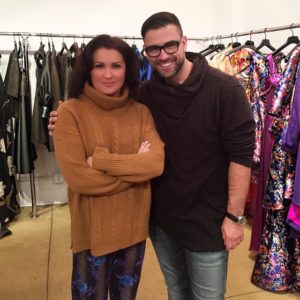On the weekend of her funeral, record producer Martha de Francisco reminisces on a studio life with Jessye:
Close-up memories of a unique recording artist –
Jessye Norman
by record producer Martha de Francisco
My first encounter with Jessye Norman was at the Musikverein Hall in Vienna in 1983, as we prepared to record Mahler’s Resurrection Symphony with Lorin Maazel and the Vienna Philharmonic Orchestra with the Vienna State Opera Chorus for CBS Masterworks. From the onset of her voice singing “O Röschen rot” in “Urlicht” the musical impact of that magical voice and the depth of her performance made a lasting impression on me as a young musician and recording professional. It marked the beginning of my life-long appreciation of Jessye Norman’s amazing artistry and it established the basis for a fruitful collaboration on her unforgettable recordings.
Her rendition of La Marseillaise in the Berlioz setting with L’Ochestre de Paris and the Chœur de l’Orchestre de Paris under Semyon Bychkov for the 200th anniversary of the Storming of the Bastille in 1989 marked a milestone in my early career as a Philips producer. I produced the recording at Salle Pleyel in Paris. Images of Jessye Norman wrapped in the tricolore during the bicentenary celebrations, singing the most palpable embodiment of French music in the spirit of liberté, égalité, fraternité are etched in my memory.
The recording of Richard Strauss’ Ariadne auf Naxos, in a line-up of the greatest vocal stars such as Edita Gruberova, Dietrich Fischer-Dieskau and Julia Varady with Kurt Masur and the Gewandhaus Orchestra, offered me the opportunity to admire Jessye Norman’s immense musicality and the power of her voice from the close-up perspective of a record producer. We recorded the opera for Philips at the Neues Gewandhaus in Leipzig in 1988. Jessye’s Ariadne was magnificent, majestic and profoundly human. During a longer break between our recording sessions, I was an accomplice as Jessye escaped to visit Johann Sebastian Bach’s Saint Thomas Church where we listened to a concert of cantatas sang by the Thomaner boys’ choir. Sitting with Jessye Norman right next to Johann Sebastian Bach’s grave, feeling her emotion and mine as we listened to this music together while being aware of the composer’s physical presence in front of us, was a unique experience that I keep deeply in my heart.
Of personal and spiritual importance in Jessye Norman’s recording career are two productions I was entrusted with as recording producer for Philips. One was In the Spirit, a Christmas concert that we recorded in various churches around New York in 1996 for which Jessye put together a musical program and invited community choirs to accompany her on a spiritual adventure through music.
December 1990 saw the release of the recording and filming of Jessye Norman at Notre Dame, a major musical event that took place during a freezing Parisian winter. The Cathedral was at capacity and the Christmas concert was conveyed to a crowd gathered on the square of Notre Dame who followed the concert live over a large screen and huge loudspeakers. Few of those who later listened to the CD or saw the film on television around the world, were aware of the complexities that followed, as changes had to be introduced to the recording schedule. Jessye was at the center of making it all work, and I remember her involved in a phone conference with Jacques Lang, minister of culture, capably leading the negotiations in her impeccable French, which led us to getting the Cathedral to remain closed for an extra morning of recordings the day after the concert. I admired not only Jessye’s musical prowess, but also, her ability to make impossible things happen.
She demanded much of herself and it was just fair that she would demand equal professionalism from those around her. It was a wonderful privilege to see Jessye in collaboration with her musical partners, celebrated conductors and pianists, her fellow singers, Opera companies, orchestras, symphonic or lay people’s choirs, children’s choirs, record label representatives and recording teams. She enjoyed the greatest degree of esteem and veneration.
A particular highlight was for me to witness the close artistic partnership between two musical titans, Jessye Norman and James Levine, which I experienced firsthand in our recording of their Salzburg recital in 1991, as well as while recording Schönberg’s Erwartung with the New York Philharmonic in 1993. These are unforgettable experiences.
I feel fortunate to have witnessed Jessye’s human depth as we were struck by the passing of a common friend after illness. I greatly admired the faithful friend Jessye Norman, a world star, who would travel to Amsterdam to spend time with our dying friend, his family and friends, grieving together, offering all of us her warmth and consolation.
Among the happier memories in the course of the years are evenings at her home optimizing the mixes of our latest recording, which ended in the kitchen, cooking a simple pasta dish together and telling witty stories, before returning to our listening.
My final encounter with Jessye was during her last visit to Bogotá in 2010 where we reminisced on our common memories around her Philips recordings, music and friendship. That final recital, which I witnessed accompanied by my family in Colombia, is still resonating in my inner ear.
Farewell, dear friend. I find solace in recognizing your spirit immersed in profound discourse with the composers in the recordings you left us, your great gift to the world.
October 2, 2019
Martha de Francisco was one of Jessye Norman’s recording producers for Philips (1986-2000).
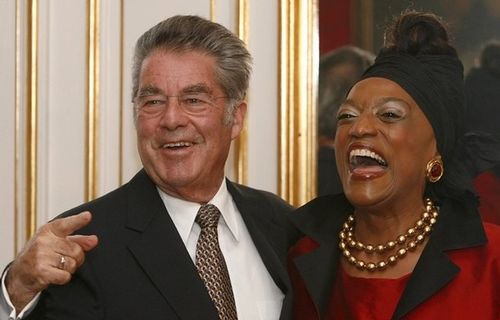
Message from the New National Theatre, Tokyo:
Due to circumstances and suspension of public transport arising from the Typhoon Hagibis, Eugene Onegin on Saturday 12 October at 14:00 is unfortunately cancelled.
We deeply regret this inconvenience to our valued audience.
Sunday’s theatre performance is also cancelled.

Stay safe, friends.
Ian Pace has now assembled 28 separate accounts of sexual abuse at Chetham’s, the Manchester music school. Two of the perpetrators went to jail. One took his own life. Others live on, untroubled by their consciences.
Here are a couple more victim stories from Ian’s post:
AL14: I was at Chet’s 1987-91. Looking back, I feel sad for the vulnerable girl I was, that loved ( and still do) music. I held my teacher in such high esteem..if he said jump, I jumped. At 15 I was given an opportunity to study piano with B. and I remember feeling so excited. That was soon to change. A naive, country girl – I couldn’t understand why I felt so uncomfortable during my lessons. Surely, he couldn’t be touching my private parts whilst I was trying to play..it must be my imagination I thought. However, I soon stopped the lessons through feeling scared. My house parent questioned me why I stopped lessons with B. and after he asked the question, ‘has he done something’ I reluctantly told him about the way he touched me. I remember my house parent shaking his head and saying, ‘not again’.
AL17: I was the first girl to report sexual abuse in 1971 and would have appreciated that being recognised. I felt that my existence hadn’t mattered and this has really affected me very badly this last week.
It was only after my mother telling me the day after my father died, that I had been the biggest disappointment in their lives, was I then able to tell her about the abuse and the reason for me returning [home]. My father died, never knowing.
AL19: He didn’t like me and used to play mind games with me. He withheld coveted positions in the orchestra deliberately and taunted me about it. My very worst time was when I was in Upper Sixth and he summoned me for a private chat in his office at night. When I went in he was wearing those tiny shorts he often wore that left nothing to the imagination. He sat behind his desk and regarded me with amusement; I was clearly nervous as I didn’t know what he wanted. He wrote something on a piece of paper and then put it in the top drawer of his desk, locked it and laid the key on the desk. Then he stood up, put one foot on a chair, so his genitals were exposed, and said to me “I know what you’re going to be”. I had no idea what was going on or what he meant. He gestured to the drawer “that piece of paper says what will happen after you leave school. Do you want to know what it says?” I didn’t know what to do, and stood there frozen. He regarded me with contempt, put his leg down, and shooed me away, saying “you can go”. I escaped. I didn’t tell anyone; what was the point and who should I tell?
When I left I went to one of the most prestigious universities in the UK to read music. Despite this, I was seen as a failure by the music department … I want the staff of the time, those that are alive, to know about our stories, and for them to acknowledge how wrong their decisions were and to apologise without reservation.

The Argentine composer Esteban Benzecry asks: ‘What will Gustavo Dudamel and (pianist) Sergio Tempo be demanding after the premiere of my piano concerto?’
The world premiere is coming up at the LA Phil.
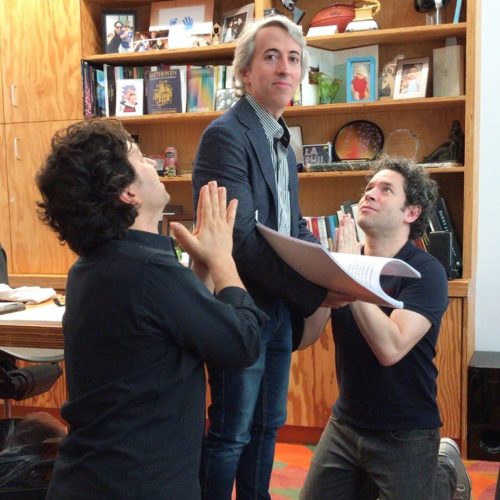
¿Que me estarán pidiendo Gustavo Dudamel y Sergio Tiempo luego del ensayo general de mi Piano Concerto?
From the Lebrecht Album of the Week:
Most records are disposable. A few are memorable, a small handful are treasurable and every now and then now one comes along that is indelible. This box is something else. I think this is the first time I have ever described a record set as indispensable….
Read on here.

And here.
The Dutch violinist Janine Jansen played the Tchaikovsky concerto with the Berlin Phil and Paavo Järvi last night after a stop-start, injury-ridden year.
At her best, she is untouchable.
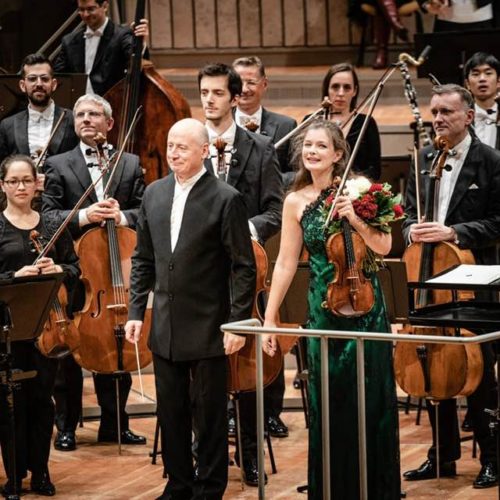
We hear she was at her best.
Anne-Marie Le Guével has been made acting director of the Paris Conservatoire, in the absence f any more qualified person.
The last boss, composer Bruno Mantovani, left in July and no-one has been found fit to replace him.
Le Guével holds the Napoleonic title of Inspector General of Cultural Affairs (IGAC).
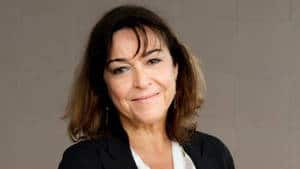
She hs no public or online profile.
The tenor has told the German press agency in a CD-publicity interview that he has not sung at all for the past four weeks.
Kaufmann, 50, has also taken a decision to reduce the frequency of his appearances, not singing every night or even every second night, but only every third or fourth.
He says: ‘The trend has to be towards more free time because this is my last chance to enjoy a family and not just look on from afar’.
More here.
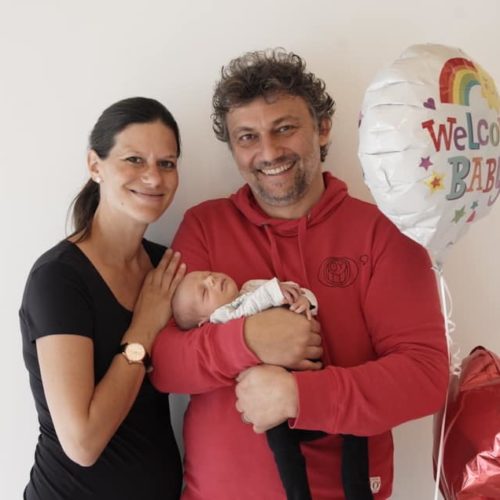
Kaufmann’s wife, Christiane Lutz, is presently directing Verdi for a Glyndebourne tour.
One of the guests at a small lunch I attended in Toronto last month was a quiet lady called Cathy Beck. I hardly got the chance to talk to her.
Turns out that the estate of Cathy’s parents, Tom and Mary Beck, just gave the Toronto Symphony $10 million, the biggest windfall in its history.
Cathy is president of the orchestra and part of a small team that is driving its renewal under a new music director, Gustavo Gimeno.
Toronto is wearing a great big grin this morning. This gives them the chance to challenge Montreal at the top of the orchestra tree.
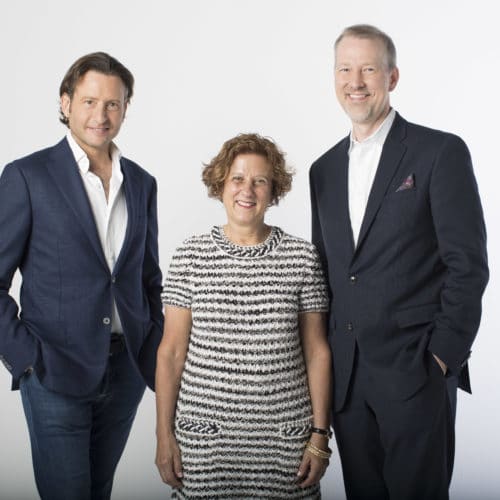
Gimeno, Cathy Beck, TSO choef Matthew Loden last night (c) Christopher Wahl
Press release:
TORONTO, OCTOBER 10, 2019, 8:15PM ET—Matthew Loden, CEO of theToronto Symphony Orchestra (TSO), tonight announced to a packed auditorium at Roy Thomson Hall a gift of $10 million from the estate of long-standing supporters and patrons Tom and Mary Beck. The gift is the largest single donation in the Orchestra’s history. This donation brings the lifetime giving of the Beck family to the TSO to over $20 million.
This historic $10-million gift from the Estate of H. Thomas and Mary Beck has an impact that is immediate and lasting. In accordance with the wishes of the family, the gift has been directed toward the support of key artistic initiatives over the coming years, as well as important financial objectives including the reduction of the accumulated deficit and growing the Toronto Symphony Foundation endowment.
“My profound thanks to the Beck family on behalf of the entire TSO community. The gift from the Estate of H. Thomas and Mary Beck is the
culmination of a lifetime of generosity, and represents an incredible legacy for all of us at the TSO to steward—we are deeply grateful. The Becks’ support ensures continued bold artistic programming in the coming seasons, and will reinforce investments in education, community engagement, and audience development, which are all vital to the mission of the TSO,” says Matthew Loden, CEO.
“Tom and Mary Beck were the kind of friends and supporters that every arts organization dreams of,” says Sir Andrew Davis, the TSO’s Interim Artistic Director. “They loved the music of the Toronto Symphony passionately and believed that what it gave and continues to give to Toronto and the world is no mere luxury but rather a vital part of the fabric of life.”
In addition to their generous donations over the years, the Becks showed their love of the symphony with their time and energy. Tom, who passed away in 2015, sat on the Board of Directors for 22 years, and served as Chair in the early 80s. Mary, who passed away last year, was a constant and supportive presence, beloved by the musicians. Both Tom and Mary welcomed TSO musicians into their lives with warmth and grace. The family legacy lives on through their children Anthony, Liddy, and Cathy. Currently Chair of the TSO Board, Cathy Beck has served as a Director since 2015.
Ruben Singer, if you can afford him.
He also looks after Beyoncé, Shakira, Fergie and Alicia Keys.
